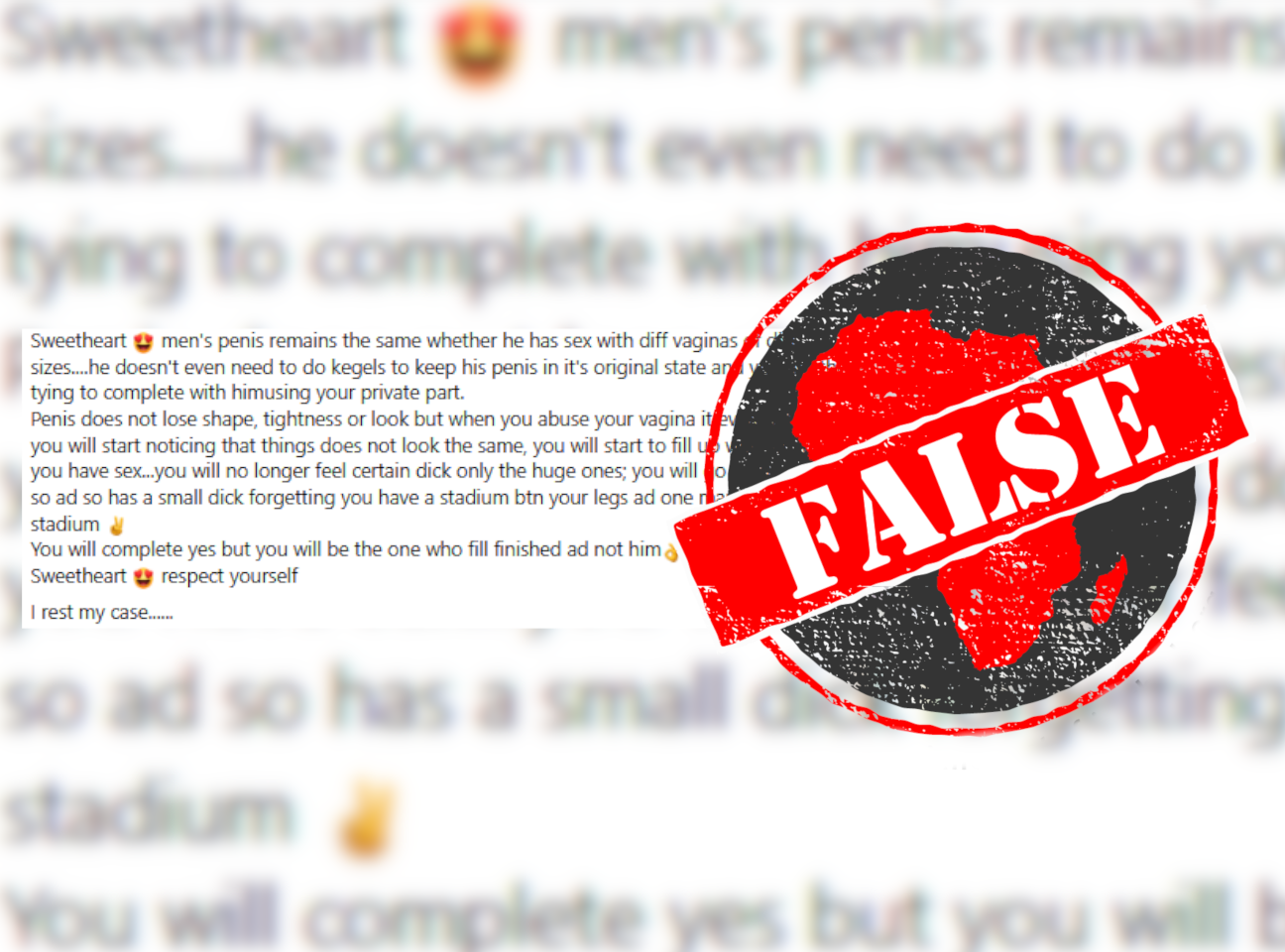IN SHORT: A post on Facebook warning women not to have sex too often as it will change the shape or “tightness” of the vagina is misleading. There is no evidence that sex causes a “loosening” of the vagina.
A warning that women can’t “compete” with men in terms of how often they have sex was shared on Facebook in South Africa in September 2022. It claims this is because vaginas lose their shape, tightness and look over time.
Similar claims of vaginas “loosening” have been made in the past, discouraging women from having multiple sex partners.
In 2021, Africa Check debunked various myths about the vagina. We found that there was no correlation between how often you have sex and the shape, size or "tightness" of your vagina.
Here’s why.

What happens to the vagina during sex?
The vagina is a muscular canal that can expand in both length and width, for example during childbirth or when penetrated during sex.
But, as experts point out, this change is not permanent.
During sexual arousal, blood flow to the vagina increases, enhancing the production of natural lubrication. The muscles of the vaginal canal also relax, in preparation for penetration.
The last stage of the sexual response cycle sees the body return to its pre-sex state. This includes the vagina’s return to its original size.
Experts previously told Africa Check that there is no basis for the claim that frequent sex permanently changes the shape or size of the vagina. Although vaginas widen during penetrative sex, they usually go back to their normal size within an hour.
The claim is false.
Republish our content for free
For publishers: what to do if your post is rated false
A fact-checker has rated your Facebook or Instagram post as “false”, “altered”, “partly false” or “missing context”. This could have serious consequences. What do you do?
Click on our guide for the steps you should follow.
Publishers guideAfrica Check teams up with Facebook
Africa Check is a partner in Meta's third-party fact-checking programme to help stop the spread of false information on social media.
The content we rate as “false” will be downgraded on Facebook and Instagram. This means fewer people will see it.
You can also help identify false information on Facebook. This guide explains how.


Add new comment